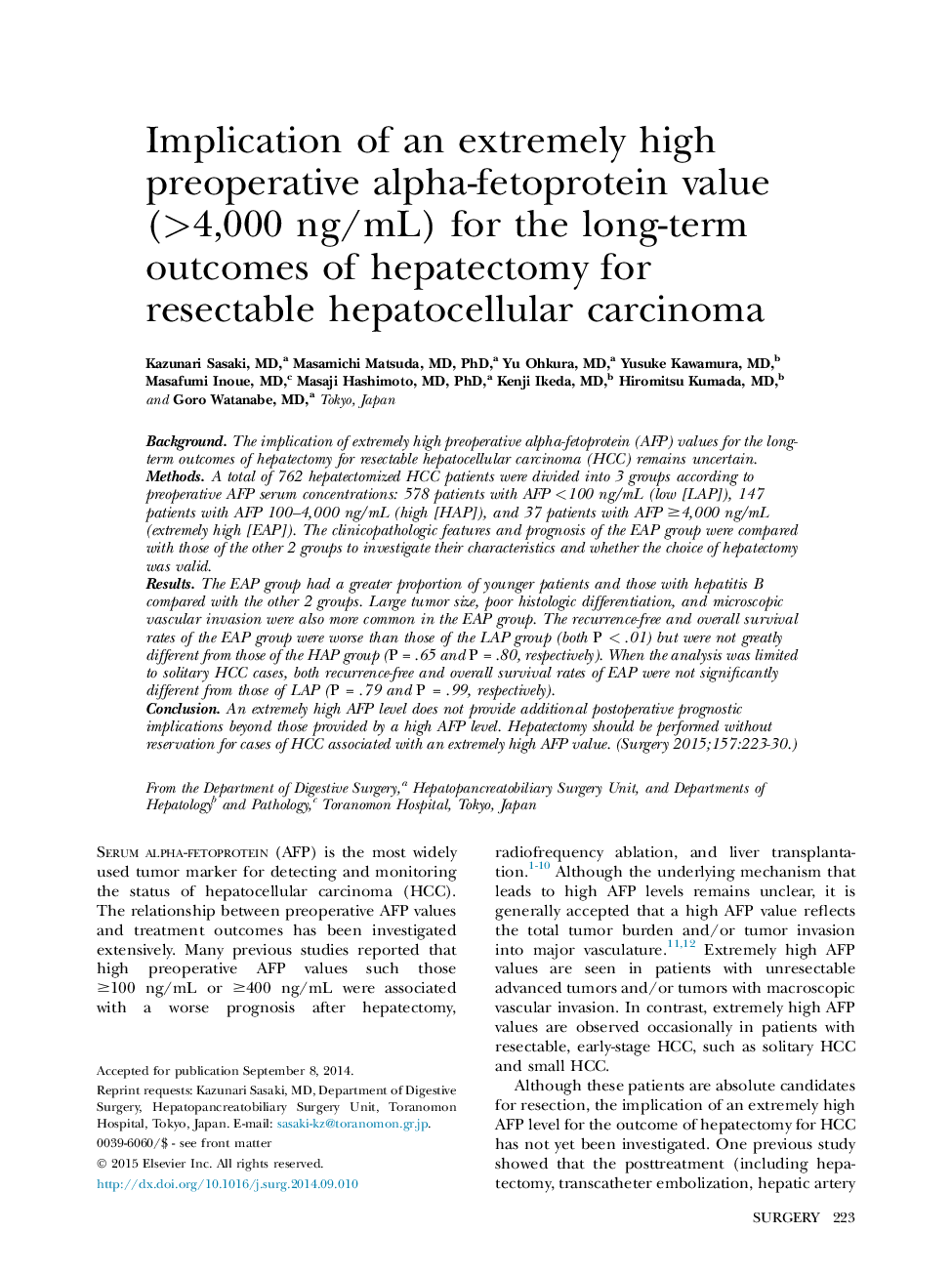| Article ID | Journal | Published Year | Pages | File Type |
|---|---|---|---|---|
| 6255463 | Surgery | 2015 | 8 Pages |
BackgroundThe implication of extremely high preoperative alpha-fetoprotein (AFP) values for the long-term outcomes of hepatectomy for resectable hepatocellular carcinoma (HCC) remains uncertain.MethodsA total of 762 hepatectomized HCC patients were divided into 3 groups according to preoperative AFP serum concentrations: 578 patients with AFP <100 ng/mL (low [LAP]), 147 patients with AFP 100-4,000 ng/mL (high [HAP]), and 37 patients with AFP â¥4,000 ng/mL (extremely high [EAP]). The clinicopathologic features and prognosis of the EAP group were compared with those of the other 2 groups to investigate their characteristics and whether the choice of hepatectomy was valid.ResultsThe EAP group had a greater proportion of younger patients and those with hepatitis B compared with the other 2 groups. Large tumor size, poor histologic differentiation, and microscopic vascular invasion were also more common in the EAP group. The recurrence-free and overall survival rates of the EAP group were worse than those of the LAP group (both P < .01) but were not greatly different from those of the HAP group (P = .65 and P = .80, respectively). When the analysis was limited to solitary HCC cases, both recurrence-free and overall survival rates of EAP were not significantly different from those of LAP (P = .79 and P = .99, respectively).ConclusionAn extremely high AFP level does not provide additional postoperative prognostic implications beyond those provided by a high AFP level. Hepatectomy should be performed without reservation for cases of HCC associated with an extremely high AFP value.
